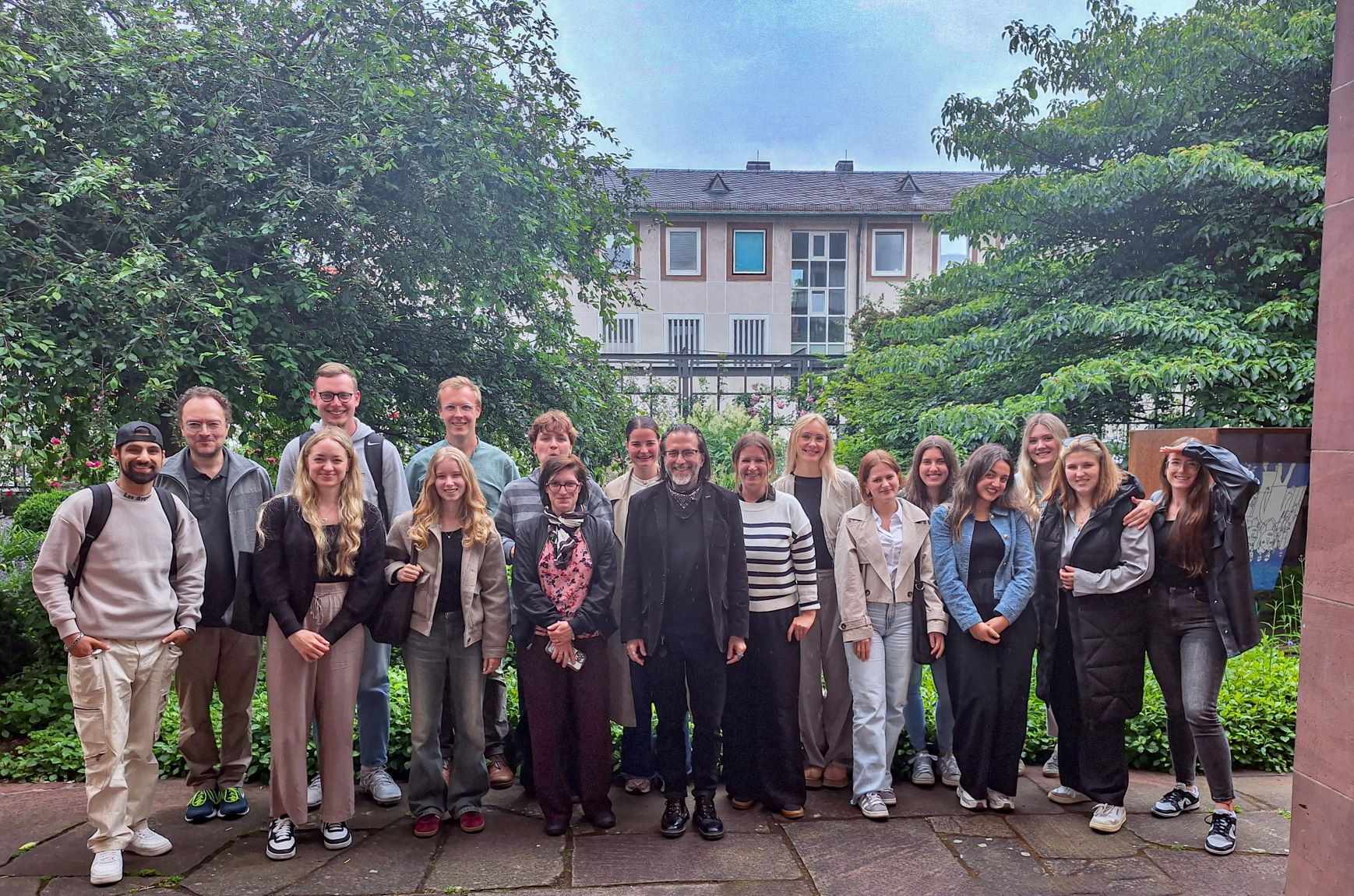Heat protection network cooperates with teaching and research projects in nursing science and social work at Frankfurt UAS
Vulnerable groups must be better protected from the effects of extreme heat – this was the demand made by social welfare organisations in the media during the heatwave at the beginning of July. Students at Frankfurt University of Applied Sciences (Frankfurt UAS) have now worked with Marco Elischer, one of the city’s climate adaptation managers, to find out how social institutions, care facilities and hospitals in Worms experience heat and what protective measures are being implemented, ranging from reminders to drink water to providing shade. In addition to an interview study, they developed a concrete heat protection plan during the 2025 summer semester. The findings of the students of social work and applied nursing science will be incorporated into the EU Interreg-funded project ‘Ready4Heat’ and the associated heat protection network.
Cooperation within the framework of ‘Ready4Heat’
Worms is one of four model municipalities in the EU Interreg project ‘Ready4Heat’. In exchange with its European partners, the city is developing a model heat protection action plan and establishing a heat protection network with stakeholders. The measures focus on vulnerable groups such as older people and those in need of care. Mayor Stephanie Lohr emphasises: ‘In Worms, we see ourselves as a pioneer in heat protection, especially given our particular vulnerability as a heat hotspot. We are therefore delighted to pass on this practical experience to students and at the same time benefit from perspectives from research.’ The teaching research projects gave students the opportunity to gain practical experience of the consequences of climate change in their future field of work. “Our collaboration is in line with the strategic guiding principle of sustainability at our university. In view of increasingly frequent heat waves, it is crucial that future social work and care professionals understand how heat protection measures can be linked to long-term changes in dealing with climate risks,” said Prof. Dr. Caroline Schmitt, Professor of Ecosocial Work and Care at Frankfurt UAS.
In total, the students conducted 13 discussions and interviews in partner institutions of the heat protection network on site. These included a hospital, care facilities and a facility for elderly people. The perspectives of managers, specialists, residents and recipients were surveyed. Through the exchange between the teaching projects, the students also gained insight into the perspectives of the other disciplines.
Heat protection influences satisfaction with facilities, differences in implementation
Students on the dual Bachelor’s degree programme in Applied Nursing Science conducted an interview study as part of the teaching research project ‘Climate adaptation and heat protection in care facilities’ under the supervision of Prof. Dr. Miriam Peters, Professor of Clinical Nursing, Prof. Dr. Lisa Schmidt, Professor of Nursing Science, and Prof. Dr. Caroline Schmitt.
The survey of professionals and residents at several facilities shows that selective measures such as changes to the daily routine already exist in many facilities, but heat protection is not implemented systematically. ‘The differences between facilities show that heat protection has not been established across the board. Structural conditions also influence how effective measures are. How residents assess the effectiveness of heat protection ultimately also affects their satisfaction with the facility,’ says Peters. The survey already allows for concrete recommendations for action.
Social work students have drawn up a detailed heat protection plan for a facility in Worms based on the discussions. They developed the concept in the course ‘Climate Crisis, Disaster Risk Reduction. Intersectional, International and Interprofessional Approaches’ with the participation of local stakeholders and experts and in exchange with Worms’ climate adaptation manager Marco Elischer. Caroline Schmitt and Professor Timo Tohidipur, Professor of Social Work Law, specialising in migration law, including European and international aspects, led the seminar, which will continue in the next semester. The plan will be reviewed and adapted in consultation with the institution during the winter semester. ‘As a team for climate protection and climate adaptation, transdisciplinary projects and scientific cooperation are important to us so that we can benefit from new research results in Worms at an early stage. At the intersection of disaster prevention and climate adaptation, there is a great need and good potential for further projects,’ says Marco Elischer, Climate Adaptation Manager and Facilitators of the Heat Protection Network in Worms.
Read the Joint Press Release of the City of Worms and FUAS in German here.
More information on climate adaptation management in the city administration of Worms:
Information on the Bachelor’s degree programme in Social Work at:
www.frankfurt-university.de/sozialearbeit
Information on the dual Bachelor’s degree programme in Applied Nursing Science at:
www.frankfurt-university.de/pflege
